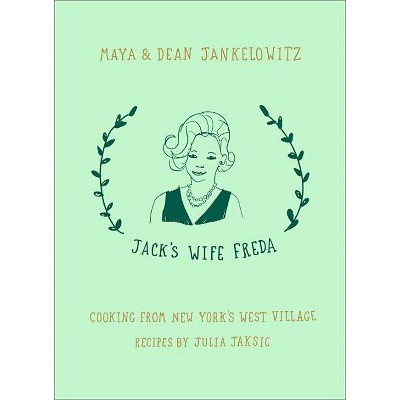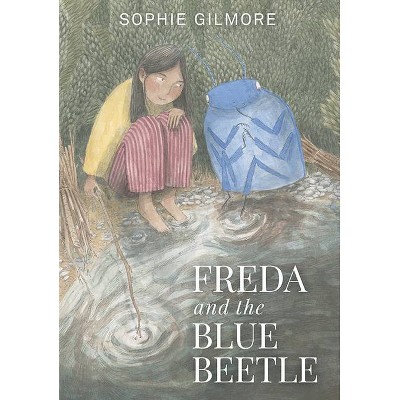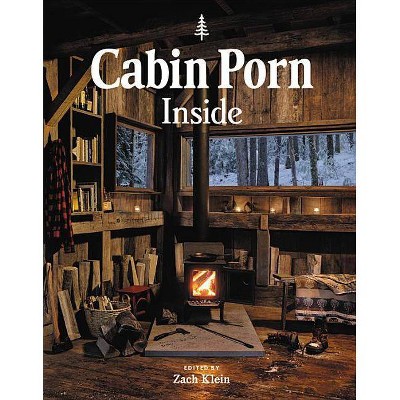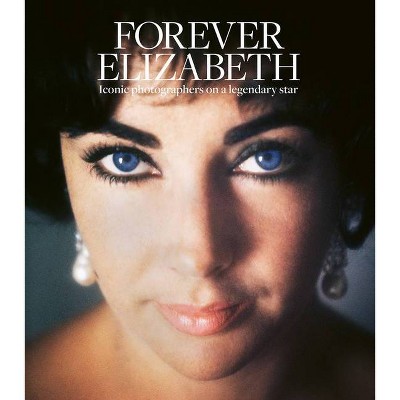Alice + Freda Forever - by Alexis Coe (Hardcover)
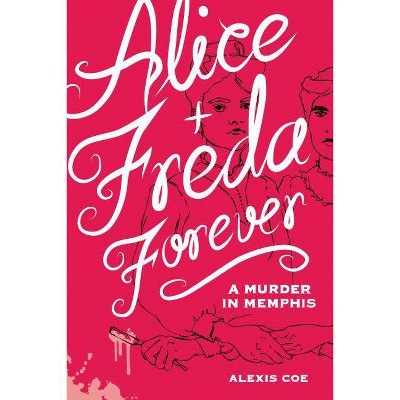
Similar Products
Products of same category from the store
AllProduct info
<p/><br></br><p><b> About the Book </b></p></br></br>"In 1892, America was obsessed with a teenage murderess, but it wasn't her crime that shocked the nation--it was her motivation. Nineteen-year-old Alice Mitchell had planned to pass as a man in order to marry her seventeen-year-old fiancâee Freda Ward, but when their love letters were discovered, they were forbidden from ever speaking again. Freda adjusted to this fate with an ease that stunned a heartbroken Alice. Her desperation grew with each unanswered letter--and her father's razor soon went missing. On January 25, Alice publicly slashed her ex-fiancâee's throat. Her same-sex love was deemed insane by her father that very night, and medical experts agreed: this was a dangerous and incurable perversion"--Publisher's website.<p/><br></br><p><b> Book Synopsis </b></p></br></br><p><strong><em>Alice + Freda Forever</em> is a gut-wrenching story of love, death, and the dangers of intolerance.</strong>--<em><strong>Bustle</strong></em></p> <p>In 1892, America was obsessed with a teenage murderess, but it wasn't her crime that shocked the nation--it was her motivation. Nineteen-year-old Alice Mitchell had planned to pass as a man in order to marry her seventeen-year-old fiancée Freda Ward, but when their love letters were discovered, they were forbidden from ever speaking again. </p> <p>Freda adjusted to this fate with an ease that stunned a heartbroken Alice. Her desperation grew with each unanswered letter--and her father's razor soon went missing. On January 25, Alice publicly slashed her ex-fiancée's throat. Her same-sex love was deemed insane by her father that very night, and medical experts agreed: This was a dangerous and incurable perversion. As the courtroom was expanded to accommodate national interest, Alice spent months in jail--including the night that three of her fellow prisoners were lynched (an event which captured the attention of journalist and civil rights activist Ida B. Wells). After a jury of the finest men in Memphis declared Alice insane, she was remanded to an asylum, where she died under mysterious circumstances just a few years later. </p> <p><em>Alice + Freda Forever </em>recounts this tragic, real-life love story with over 100 illustrated love letters, maps, artifacts, historical documents, newspaper articles, courtroom proceedings, and intimate, domestic scenes.</p><p/><br></br><p><b> Review Quotes </b></p></br></br><br><p>'Alice + Freda Forever's' Alexis Coe on a Shocking, Forgotten Case of Teenage Lesbian Murder<br /> Books By Karen Abbott October 9, 2014<br /> Karen Abbott, the author of the new Liar, Temptress, Soldier, Spy: Four Women Undercover in the Civil War, and Alexis Coe, the author of Alice + Freda Forever, feel like historian soulmates: both women have done wonderful jobs in their respective books, two of fall's best, reviving hidden stories of groundbreaking women from the 1800s (even if there's a 30-year difference). Both books are immaculately researched and enticingly written, the sort that you'll stay up all night reading with a flashlight under the covers. Coe previously interviewed Abbott for The Toast (where she is a columnist), so we wanted to see what would happen if Abbott interviewed Coe. Click through to read the resulting interview.<br /> <br /> In 1892, America was obsessed with a teenaged murderess, but it wasn't her crime that shocked the nation -- it was her motivation. Nineteen-year-old Alice Mitchell had planned to pass as a man to marry her seventeen-year-old fiancée Freda Ward, but when their love letters were discovered, they were forbidden from ever speaking again. Heartbroken and desperate, Alice filched her father's razor and, in broad daylight on a winter afternoon, slashed her ex-lover's throat.<br /> <br /> In her new book, Alice + Freda Forever, historian Alexis Coe recounts their story with the color and liveliness of a novel (The New Yorker). The book is also an Amazon Best Book of the Month. Coe talked to Flavorwire about the women's illicit relationship, Alice's lurid crime, and a trial that enthralled -- and confounded -- 19th-century America.<br /> <br /> Karen Abbott: In the introduction, you talk about carrying around this story for a long time. What kept you interested?<br /> <br /> Alexis Coe: I wasn't just a historian who stumbled upon a provocative, forgotten piece of history. Alice and Freda became people I cared about, and I was upset over the injustice both faced. Obviously Alice committed an unconscionable crime, but both of the young women died when they were so young, and had so little control over their lives and their legacy. By not telling their story, I almost felt complicit in silencing them.<br /> <br /> How did the insanity plea come about?<br /> <br /> alice and freda foreverAlice's father, George Mitchell, was such a dangerous man. He had a successful track record of peremptorily diagnosing women in his family. He'd placed his wife, Isabella, in a hospital after she gave birth on three separate occasions, deeming what was probably postpartum depression unsuitable for a wife and mother. In the 1890s, committable behavior included a new mother's resistance to sex soon after birth. Once in the hospital, Isabella supposedly passed from melancholia to insanity to acute mania, and after two months of restraint, she was finally released. She expected be reunited with her two month old infant, but she returned to an empty bassinet. In her absence, and perhaps as a result of it, the infant died. If she dared mourn, George would once again have her institutionalized. She gave birth to seven children during her lifetime. Four survived to adulthood.<br /> <br /> On the very night Alice killed a perfectly healthy seventeen-year-old woman in broad daylight, with plenty of witnesses and evidence to prove it was premeditated, George convinced two of the most formidable lawyers in Tennessee that his daughter could not be tried for murder. At that point, Alice's hands were covered in blood. George wasn't denying that his daughter killed Freda, but he couldn't accept her motivation. Alice was never ashamed of her relationship with Freda, and was forthcoming about their intention to marry, and that she killed Freda because she loved her, and could not stand the thought of anyone else having her. In 1892, Alice's explanation wasn't just inconceivable to them -- it seemed nothing short of insane.<br /> <br /> ADVERTISING<br /> <br /> inRead invented by Teads<br /> How did Isabella's mental health history factor into the case?<br /> <br /> The defense painstakingly reviewed Isabella's hospitalizations in order to establish hereditary history, a requirement of the insanity plea. They argued that when Isabella had Alice, she passed on her insanity to her daughter. Physically. This was salient point in a nineteenth century courtroom. These accounts were then printed and debated in all the newspapers. As you can imagine, Isabella, while spoken of often, rarely made public appearances after Alice's arrest.<br /> <br /> The defense seemed so flimsy. How was it so successful?<br /> <br /> That was the brilliance of the insanity plea! The evidence didn't need to make sense, it just needed to offer some kind of explanation for what seemed inexplicable. No one wanted to believe that this was simply a crime of passion, and that such passion could exist between two women. They wanted to believe that Alice, a white woman from a respectable family, was a sympathetic victim of her own illness. In Madness and Civilization, Michel Foucault argued that physicians who sought to define reason were also silencing unreason. It was a handy way to regulate whole classes of people society deemed deviant.<br /> <br /> The only voice of reason in all of this was George Peters, the Attorney General, but he was really ineffective. It wasn't for lack of effort. No medical expert in the entire state of Tennessee would testify that Alice's same-sex love wasn't insane.<br /> <br /> Was the case forgotten after Alice was sent to the asylum?<br /> <br /> Alice lived on in the medical community. She inspired a lot of articles linking same-sex love to violence, and due to the verdict, insanity. One article in a medical journal used Alice as an example of why all people who display such perversion should be castrated, no matter gender or class.<br /> <br /> Was it difficult to spend so much time on such a tragic story?<br /> <br /> Oh, yes. I kept experiencing their relationship over and over again, from happy days to dark ones. The love letters were particularly difficult, and I reread them often. I obviously knew what was happening, but that knowledge never lessened my reactions. There were several threatening episodes long before the murder, and with each one, I saw so many opportunities for Freda to save herself. One night, she woke up to Alice clutching a bottle of poison. She was sharing a bed with someone who was contemplating killing her, and drama continued the next day. Why did Freda stay in bed with Alice? Why didn't she tell someone?<br /> <br /> LiarThat being said, there was plenty of wry humor. The chapter headings are lifted from primary sources, which allowed me to name one Erotomania and another Sexual Monsters. I found comic relief in nineteenth century phrases, many of which I now unsuccessfully attempt to use in conversation. When I hear a crazy theory, I exclaim, that's the ebullition of a crank! I could also illuminate the more ridiculous moments in the text and through illustrations. I catalogued the absurd evidence used by medical experts to support Alice's insanity plea, and then had Sally Klann, my illustrator, list them above a few hapless looking doctors. Their faulty reasoning included: She is left-handed. Her face is larger on side than the other. She intended to commit suicide, but forgot. She is weak minded. She dominated the mind of Freda Ward.<br /> <br /> If Alice was weak minded, how she dominate the mind of Freda Ward?<br /> <br /> That's something I often ask aloud, much to my dog's confusion. The defense and medical experts were trying to link same-sex love to insanity, and that ridiculous contention called for a lot of unstable arguments and conclusions. At times, it seemed like they were just throwing things against the wall to see what stuck.<br /> <br /> You have a detailed chapter on the use of media, and local papers' relationship to men who played major roles in the Mitchell-Ward case. Conflict of interest?<br /> <br /> The middle to upper class white men in Memphis stuck together! Alice's attorneys and judge had all worked at or invested in the local newspapers. Articles and letters to the editor were splashed across pages for half of 1892, and definitely influenced the jury. Some reporters were clearly pandering, which seemed to accomplish several goals. When one paper praised the jury, whose chivalry exceeds their sense of justice, they considered it a compliment, but it was also a directive. Alice's father was well liked and respected in Memphis, and the court could not possibly impugn the honor of a well-bred young lady by branding her a criminal.<br /> <br /> These men also knew each other in municipal capacities, and from the KKK. Alice's judge, Julius DuBose was one of the foundering members of the Tennessee Ku Klux Klan. Alice was in the same jail as the victims of the infamous People's Grocery lynching. They'd dared open a market in the Curve, a densely populated black neighborhood that already had one grocer. He was white, and didn't like the competition. Rumor has it that DuBose was at the lynching, and I'm inclined to believe it. I don't think the angry mob had any trouble getting the Sheriff to hand over Calvin McDowell, Thomas Moss, and Henry Steward. DuBose knew the jailers well, and possibly had his own set of keys. After all, he presided over all the cases in that jail.<br /> <br /> Is the case well known in Memphis?<br /> <br /> Alice and Freda's plots are a part of the tour at Elmwood Cemetery, a gothic, creeptastic place. I went back several times to take in the elaborate headstones. Some look like bathtubs, and others resemble monuments.<br /> <br /> Outside of Elmwood and research institutions, Alice and Freda's story is not well known. Memphis history tends to focus on Civil War, their catastrophic Yellow Fever outbreaks, the assassination of Martin Luther King and, of course, Elvis. I tried to spread the word when I was researching there, and reactions were diverse -- and a few were quite shocking. I was unprepared for the assumptions thrust in my direction about my sexual preference, and there were just a couple of hateful comments -- not unlike what I saw posted outside Baptist churches.<br /> <br /> Most Southerners, however, are far too polite to say such things, and the majority was eager to learn more, which was really encouraging at the beginning of such a massive undertaking. An archivist in Nashville had my favorite reaction: Well butter my butt and call me a biscuit!<br /> <br /> How do you think the book will be received in Memphis?<br /> <br /> I'm eager to find out! I've been doing a lot of phone interviews with journalists in Memphis, and they seem excited to discover this significant, forgotten part of their history. I arrive the day after the book hits stores, and my tight schedule suggests they're at least curious. I hope I don't hear anyone say, Bless your heart. That's not a good thing.<br /> <br /> Will people make connections between the past and the present?<br /> <br /> I found Alice and Freda's world sadly familiar. The most acrid arguments and language used by opponents of same-sex marriage today are almost identical to the ones used to describe Alice and Freda's relationship in 1892: Unnatural. Perverse. Pointless without progeny. I'm continually amazed that, over 120 years later, a marriage between Alice and Freda would still be illegal in Tennessee.<br /> <br /> Will there be Alice+Freda Forever, the movie?<br /> <br /> I get asked that all the time! My literary agent at William Morris Endeavor is handling the tv/film rights, so the book is in good hands. I'll admit I've imagined Saoirse Ronan as Alice.<br /> <br /> Karen Abbott is the New York Times bestselling author of Liar, Temptress, Soldier, Spy: Four Women Undercover in the Civil War.</p>-- "Website" (10/9/2014 12:00:00 AM)<br><br><p>Coe, a columnist for <em>The Awl</em>, sheds light on one of the most lurid murder trials of the late-19th century, in this lively, provocative history. Prior to January of 1892, Alice Mitchell had planned on wedding her 17-year-old lover, Freda Ward. The two teenagers devised a plan in which Alice would try to pass as a man. But when their love letters were uncovered and the two were separated, a heartbroken Alice brutally murdered her ex-fiancée. As the details of their relationship were revealed during the subsequent media frenzy and trial, the American public struggled to comprehend the then-unspoken-of concept of same-sex love. But as Coe shows, the affair between Alice and Freda started as a socially-acceptable bond between two women, before deepening into something far more profound, bordering on outright insanity (known then as eratomania). Gender politics and societal expectations brought undue pressure on the romance, and Alice's fate (institutionalized, dying soon after from consumption) is somehow mysterious. It's an odd, even unsettling look at cultural attitudes of the 1890s. Coe argues that Alice acted not as a frustrated lesbian, but as a dangerous person just waiting for the right trigger. The author addresses the many cultural issues entangled in the controversy, providing impressively compact, albeit not expansive, coverage of the event. It's a well-written effort that <strong>makes the most of its source material on two levels, both as true crime and as social commentary.</strong>--<em>Publishers Weekly</em></p>-- "Journal" (8/4/2014 12:00:00 AM)<br><br><p>In 1892, a young woman named Alice Mitchell murdered another young woman, Freda Ward, with a razor. The two had previously been lovers with plans to get married (Alice was going to pose as a man), but they were forced to end their relationship after their families found out about it. The separation sent Alice into despair until, one day, she attacked Freda in the street and killed her. The murder was a national sensation at the time, but is little known today. <strong>Alexis Coe came across the case in a scholarly article while she was in graduate school and became fascinated by Mitchell and Ward's story. She retells it here with the color and liveliness of a novel.</strong> Her account is accompanied by illustrations of the people, scenes, and artifacts that populate this story of forbidden love.--<em>The New Yorker</em></p>-- "Magazine" (10/2/2014 12:00:00 AM)<br><br><p>In 1892, 19-year-old Alice Mitchell publicly killed her lover Freda Ward by the Memphis, TN, docks. Coe's narrative explores the tumultuous affair between the two volatile young women, from their budding school romance, through multiple threats, reconciliations, and instances of emotional manipulation, all the way to Freda's violent death. Immediately confessing to her crime of passion, Alice became the center of a media circus the likes of which the town had never seen--love (and murder) between women was unheard of at the time, particularly between white Southern women from respectable families. Utilizing numerous illustrated reproductions, Coe addresses the sexism and racism that informed court proceedings, as well as the context and effect of the Mitchell case in the wider sphere of gender politics and female 'deviant' sexuality. The reproductions of letters in Freda's and Alice's writing, while lending a personal component to the analysis, can be tedious to decipher, and the images, though skillfully rendered, don't do much to enhance what is already a provocative account of Alice and Freda's case (though their macabre nature might appeal to younger readers). VERDICT <strong>Highly recommended as an insightful exploration of an important historical true crime and a solid introduction to narrative nonfiction.</strong>--<em>Library Journal</em></p>-- "Journal" (11/15/2014 12:00:00 AM)<br><br><p>The story of a Gilded Age-era homicide that stunned a nation with its sheer violence and tabooed origins. Haunted for years about the case, media columnist and historian Coe chronicles a 19th-century, Memphis, Tennessee-based ordeal of coldblooded murder and the jilted lesbian love that inspired it. As teenagers who fell in love in 1892, Alice Mitchell and Freda Ward threw caution to the wind, exchanged rings and anticipated marital bliss. Coe recounts their illicit affair through love letters, graphic artwork and entrancing detail as Alice, the more enamored partner when compared to the flirtatious, fickle Freda, became enraged when she learned of her fiancee's heterosexual infidelities. After a failed poisoning and an attempt to dress as a man to legally consummate their nuptials, their missives were intercepted and the relationship exposed. Forbidden from contact, the women drifted apart, yet Alice, angered and despondent, watched and waited for the perfect opportunity to approach Freda and slash her throat in public. Being the Victorian era, this type of savage crime of passion provoked sensationalistic front-page 'creative reporting, ' especially as same-sex attraction was just beginning to be recognized as psychologically sound and not classified as perverse 'erotomania.' An insanity plea fueled a frenzied courtroom staffed by an all-white, male jury and a lunacy inquisition, which sentenced Alice to be institutionalized. In revisiting such a fascinating and nearly forgotten true-crime event, Coe argues that the societal, gender and cultural restraints of the era limited the options and civic compassion that could've been visited upon Alice, a woman the author presents as both a psychotic murderer and a scorned lesbian--yet it remains a mystery which personality trait took such drastic vengeance on that fateful day. <strong>A historically resonant reminder of how far societal tolerance has come and that it still remains a work in progress.</strong>--<em>Kirkus Reviews</em></p>-- "Journal" (9/15/2014 12:00:00 AM)<br><br><p>The year was 1892, and 19-year-old Alice Mitchell was in love with Freda Ward, 17. She determined that if she couldn't marry Freda, nobody else would, either. The two women devised a plan to marry, with Alice posing as a man. However, their scheme was uncovered, and their families forbade the relationship. Freda moved on with her life and discovered other loves. Alice was unable to accept life without Freda and decided to kill her former lover when she visited Memphis. This true-crime drama uses primary-source documents of letters and transcripts from the trial to provide a rich, detailed description of Alice's successful murder plot and the events following the verdict that declared Alice insane and sentenced her to an asylum. This is <strong>a captivating account, and readers will quickly become absorbed in the suspense surrounding Freda's murder. </strong>Additionally, the book provides a foundation for discussion of sociocultural themes, such as how LGBT relationships have historically been viewed by society, gender and femininity, and even journalism.--starred, <em>School Library Journal</em></p>-- "Journal" (9/1/2014 12:00:00 AM)<br><br><p>What's a list of crime books without at least one tragic love story? In 1892, 19-year-old Alice Mitchell dressed herself up as a man so she could marry her girlfriend, Freda Ward. The young lovers were caught and forbidden from ever speaking again. Freda adjusted to the heartbreak, and tried to return to her life. Alice stole her father's razor and became one of history's best known teenage murderers. <strong><em>Alice + Freda Forever</em> is a gut-wrenching story of love, death, and the dangers of intolerance.</strong>--<em>Bustle</em></p>-- "Website" (4/12/2019 12:00:00 AM)<br><p/><br></br><p><b> About the Author </b></p></br></br><p>Alexis Coe has contributed to the <i>Atlantic</i>, <i>Slate</i>, the <i>Paris Review Daily</i>, the <i>Hairpin</i>, the <i>Los Angeles Review of Books</i>, <i>Modern Farmer</i>, and many others. She is a columnist at the <i>Awl</i> and the <i>Toast</i>, and holds an MA in early twentieth-century American history. Before moving to San Francisco, Alexis was a research curator at the New York Public Library.
Price History
Price Archive shows prices from various stores, lets you see history and find the cheapest. There is no actual sale on the website. For all support, inquiry and suggestion messagescommunication@pricearchive.us


